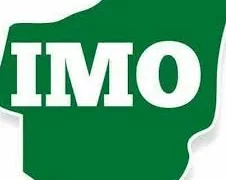The Gates Foundation has emphasised the need to rethink the role of Official Development Assistance (ODA) in Nigeria and called for a greater focus on maximising domestic resources.
The foundation’s country director, Uche Amaonwu, made the call while moderating a panel at the Agenda-2025 National Health Financing Dialogue, which was organised by the Federal Ministry of Health and Social Welfare in Abuja and had the theme “Reimagining the Future of Health Financing in Nigeria.”
Speaking on the future of external development assistance, scaling up innovation of ODA to better support national priorities and close the financing gap, Amaonwu decried the profound impact of funding reductions on programs in recent years, while noting that earlier preparation could have helped mitigate the shocks.
“Unfortunately, we had to get to that shock, but we are here,” he said.
The country director noted that ODA should act as a catalyst to unlock larger government and domestic financing streams.
Some charts presented during the session showed that ODA represents only a small fraction of total expenditure, reinforcing arguments that sustainable development depends on mobilising local resources.
He cited examples, including Nigeria’s growing coalitions to optimise domestic financing, increased allocations at the state level, and steps toward greater local government autonomy.
“These are all things that I hope we have heard the stories about the 200 million allocations. We have heard about the increase at the state level and LG autonomy. We realise that the future is for us to advise and help the government make better decisions on how to use the money.”
He also pointed to emerging mechanisms, such as partnerships aligned with the Nigerian government’s priorities, as opportunities to drive meaningful change, expressing his optimism that current reforms could position Nigeria to make more efficient and sustainable use of its resources.
Foreign development partners also stressed the need for a new approach to support Nigeria’s transformation agenda.
Ms. Maria Kirova, the African head of the Global Fund, reiterated the importance of innovative financing instruments, expansion of health insurance coverage, and reforms to strengthen financial systems.
Kirova noted that the strategy is aimed to unlock additional resources and boost domestic capacity in line with Nigeria’s priorities.
“So just remember three things here in which we as development partners can partner with Nigeria on its transformation agenda in three specific ways. Innovative finance instruments, expanding health insurance coverage, driving innovation and efficiency, and transforming financial systems.
“These are a few financial instruments that can be deployed to unlock the potential to mobilise additional resources to apply to the digital era,” she said.
Leila Ben Amor, the head of cooperation in the European Union delegation to Nigeria and ECOWAS, reiterated that financing is shifting towards more partnerships and investment.











